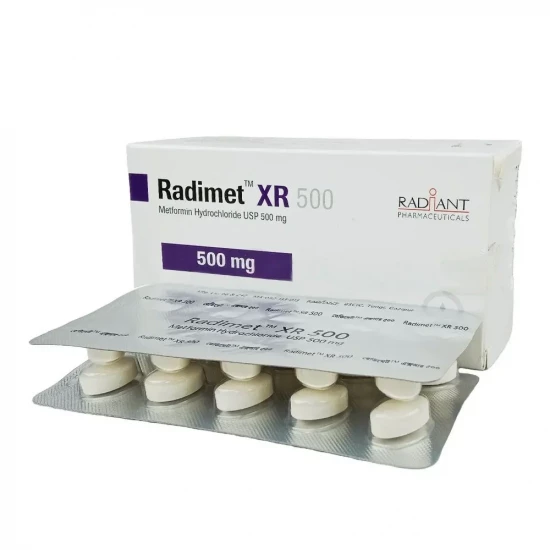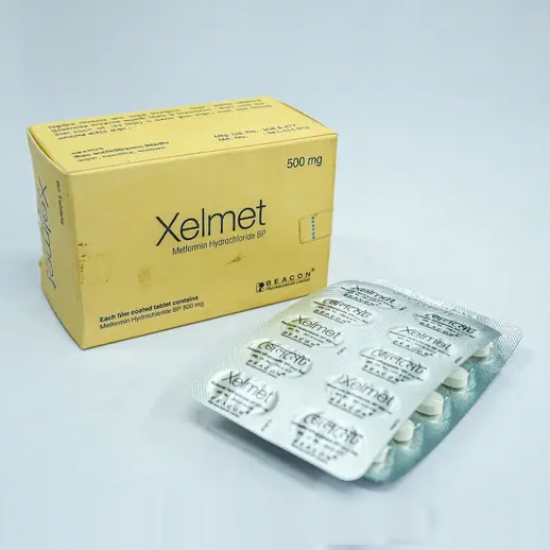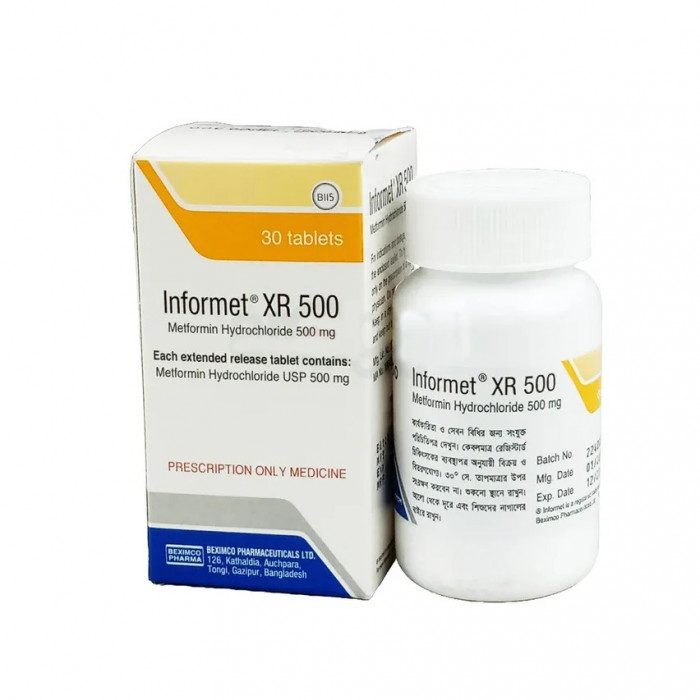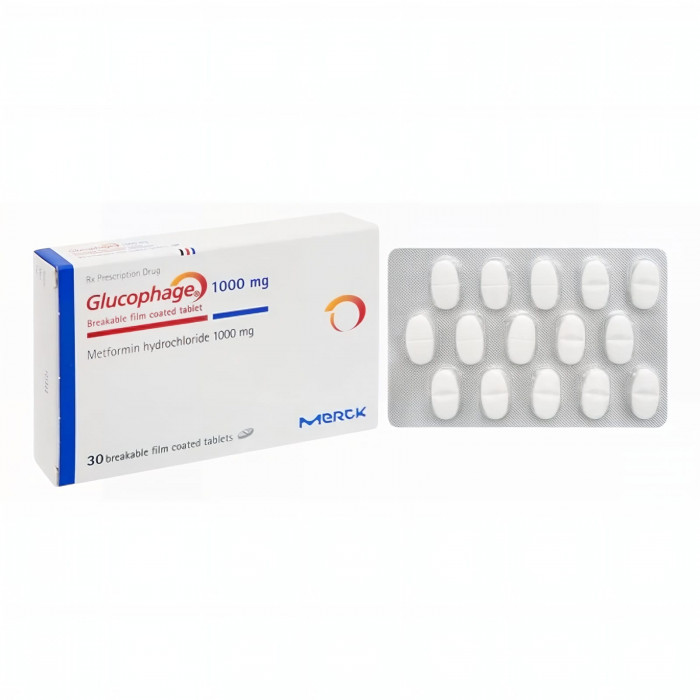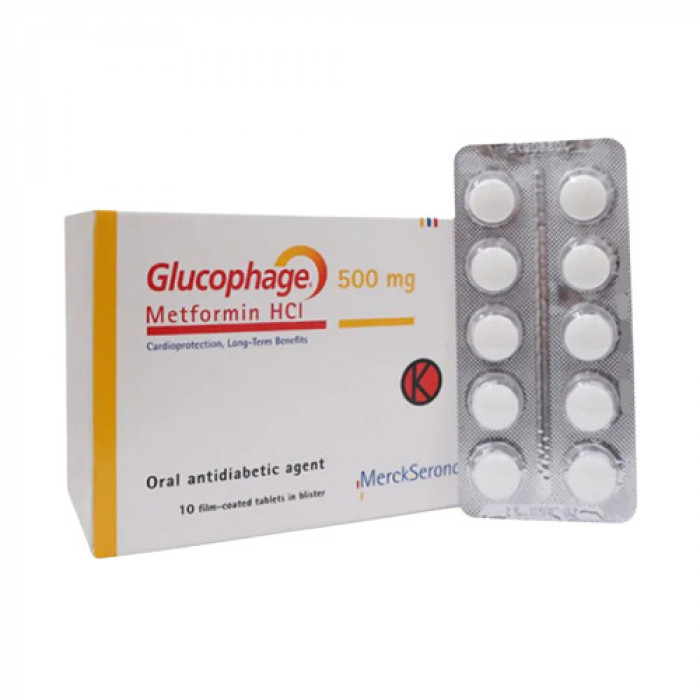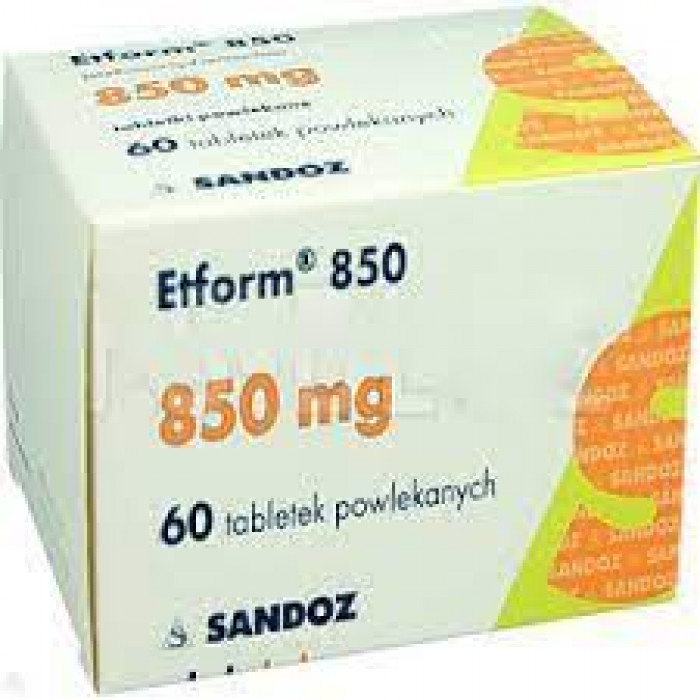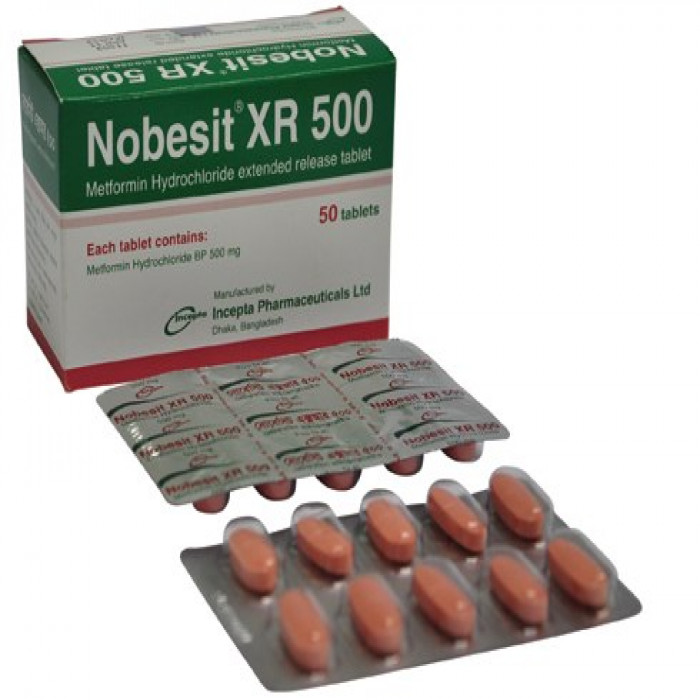
✔ 100% Authentic Product
👁️ Currently Viewing 1613
Meglu 500mg 10pcs
Tablet, Manufacturer/Distributor: Unimed & Unihealth Manufacturers Ltd. Generic Name: Metformin Hydrochloride 500mg
Discount
Price: ৳ 38
MRP:
৳
40
5%
Off

100% Genuine Products, Guaranteed

Safe & Secure Payments, Always

Fast, Secure & Efficient Delivery

Proper Packaging
 Cash on Delivery - All over Bangladesh
Cash on Delivery - All over Bangladesh Regular Delivery - 12-24 Hours, Dhaka City* Charge Tk.39-59
Regular Delivery - 12-24 Hours, Dhaka City* Charge Tk.39-59 Regular Delivery - 24-48 Hours, Other Cities* Charge Tk.99-110
Regular Delivery - 24-48 Hours, Other Cities* Charge Tk.99-110
🌙 রমযান অফার 🌙
 ফ্রি ডেলিভারিঃ - ৭৯৯ টাকা+ অর্ডারে, ঢাকা
শহরে
ফ্রি ডেলিভারিঃ - ৭৯৯ টাকা+ অর্ডারে, ঢাকা
শহরে ফ্রি ডেলিভারিঃ - ২৭৯৯ টাকা+ অর্ডারে, ঢাকার
বাহিরে
ফ্রি ডেলিভারিঃ - ২৭৯৯ টাকা+ অর্ডারে, ঢাকার
বাহিরে
📲 মোবাইল অ্যাপ অর্ডারে সাশ্রয় বেশী
-
Google Play Store থেকে ডাউনলোড
-
Apple Store থেকে ডাউনলোড
100% Genuine Products, Guaranteed
Safe & Secure Payments, Always
Fast, Secure & Efficient Delivery
Proper Packaging
 Cash on Delivery - All over Bangladesh
Cash on Delivery - All over Bangladesh Regular Delivery - 12-24 Hours, Dhaka City* Charge Tk.39-59
Regular Delivery - 12-24 Hours, Dhaka City* Charge Tk.39-59 Regular Delivery - 24-48 Hours, Other Cities* Charge Tk.99-110
Regular Delivery - 24-48 Hours, Other Cities* Charge Tk.99-110 ফ্রি ডেলিভারিঃ - ৭৯৯ টাকা+ অর্ডারে, ঢাকা
শহরে
ফ্রি ডেলিভারিঃ - ৭৯৯ টাকা+ অর্ডারে, ঢাকা
শহরে ফ্রি ডেলিভারিঃ - ২৭৯৯ টাকা+ অর্ডারে, ঢাকার
বাহিরে
ফ্রি ডেলিভারিঃ - ২৭৯৯ টাকা+ অর্ডারে, ঢাকার
বাহিরে- Google Play Store থেকে ডাউনলোড
- Apple Store থেকে ডাউনলোড
🌙 রমযান অফার 🌙
📲 মোবাইল অ্যাপ অর্ডারে সাশ্রয় বেশী
✅ Description:
Indications
Treatment of sort 2 diabetes mellitus, especially in overweight patients when dietary administration and workout alone do not result in satisfactory glycaemic control. In grown-ups: Metformin may be utilized as monotherapy or in combination with other verbal antidiabetic specialists or with insulin. In children from 10 a long time of age and teenagers: Metformin may be utilized as monotherapy or in combination with insulin. A diminishment of diabetic complications has appeared in overweight sort 2 diabetic grown-up patients treated with metformin as a first-line treatment after eating less disappointment.
Pharmacology
Metformin may be a biguanide sort of verbal antihyperglycemic medication utilized within the administration of sort 2 diabetes. It brings down both basal and postprandial plasma glucose. Its instrument of activity is diverse from those of sulfonylureas and it does not deliver hypoglycemia. Metformin diminishes hepatic glucose generation, diminishes intestinal retention of glucose, and makes strides affront affectability by an increment in fringe glucose take-up and utilization.
Administration & Dosage
Metformin immediate release tablet: Dosage of Metformin Hydrochloride must be individualized on the basis of both effectiveness and tolerance, while not exceeding the maximum recommended daily doses.
Adult: The usual starting dose of Metformin is 500 mg twice a day or 850 mg once a day, given with meals. Dosage increases should be made in increments of 500 mg weekly or 850 mg every 2 weeks, up to a total of 2000 mg per day, given in divided doses. For those patients requiring additional glycemic control, Glucomin may be given at a maximum daily dose of 2550 mg per day. Doses above 2000 mg may be better tolerated given three times a day with meals.
Children: The usual starting dose of Metformin is 500 mg twice a day, given with meals. Dosage increases should be made in increments of 500 mg weekly up to a maximum of 2000 mg per day, given in divided doses.
Metformin extended release tablet: Swallow Metformin XR tablet whole and never crush, cut, or chew.
Adult: The usual starting dose of Metformin XR is 500 mg once daily with the evening meal. The dose should be increased in increments of 500 mg weekly, up to a maximum of 2000 mg once daily with the evening meal, alternatively increased to 1000 mg twice daily taken with the meal. Patients receiving Metformin immediate release tablets may be switched to Metformin extended release tablets up to a maximum recommended daily dose.
Children: Metformin extended-release tablet has not been studied in children.
Renal impaired patient: Do not use Metformin in patients with eGFR below 30 mL/min/1.73 m2. Asses the risk/benefit of counting if eGFR falls below 45 mL/min/1.73 m2
Interaction
Carbonic anhydrase (Topiramate, Zonisamide) co-administration may increase the risk of lactic acidosis. Drugs that reduce Metformin clearance (Ranolazine, dolutegravir, Cimetidine) may cause Metformin accumulation. Metformin's effect on lactate metabolism can be amplified by alcohol.
Contraindications
Extreme touchiness to the dynamic substance or to any of the excipients. Any sort of intense metabolic acidosis (such as lactic acidosis, diabetic ketoacidosis). Severe renal disappointment (GFR <30 mL/min). Acute conditions with the potential to modify renal work such as parchedness, extreme disease, and shock. Acute or unremitting infection, which may cause tissue hypoxia such as cardiac or respiratory disappointment, later myocardial dead tissue, stun, Hepatic insufficiency, intense liquor inebriation, and liquor addiction.
Side Effects
Blood and lymphatic framework disarrange: Not known: Hemolytic anemia Metabolism and sustenance disarrange: Exceptionally uncommon: Lactic acidosis. Diminish vitamin B12 retention with diminished serum levels amid long-term utilization of metformin. Thought of such etiology is suggested in case quiet presents with megaloblastic frailty. Cases of fringe neuropathy in patients with vitamin B12 insufficiency have been detailed in post-marketing involvement (recurrence not known) Nervous framework disarranges: Common: Taste unsettling influence. Not known: Encephalopathy Gastrointestinal clutters: Exceptionally common: Gastrointestinal clutters, such as queasiness, heaving, loose bowels, stomach torment, and misfortune of craving. These undesirable impacts happen most habitually amid the start of treatment and resolve suddenly in most cases. To anticipate them, it is suggested that metformin be taken in 2 or 3 everyday measurements amid or after suppers. A moderate increment of the dosage may moreover make strides in gastrointestinal tolerability.
Pregnancy & Lactation
Pregnancy: Uncontrolled diabetes amid pregnancy (gestational or lasting) is related with an expanded hazard of intrinsic variations from the norm and perinatal mortality. When the quiet plans to ended up pregnant and amid pregnancy, it is suggested that diabetes isn't treated with metformin but insulin be utilized to preserve blood glucose levels as near to ordinary as conceivable, to decrease the hazard of deformities of the foetus. Breastfeeding: Metformin is excreted into human breast drain. No unfavorable efects were watched in breastfed newborns/infants. Be that as it may, as only restricted information is accessible, breastfeeding isn't prescribed amid metformin treatment. A decision on whether to discontinue breastfeeding ought to be made, taking into consideration the good thing about breastfeeding and the potential chance of antagonistic impacts on the child.
Precautions & Warnings
Metformin Hydrochloride is known to be excreted in large amounts by the kidneys, and the risk of Metformin accumulation and lactic acidosis increases as renal function declines. Metformin has been linked to a reduction in vitamin B12 levels. When combined with insulin or an insulin secretagogue, it raises the risk of hypoglycemia.
Storage Conditions
Protect from light and moisture by storing below 30°C. Keep the medicine out of children's reach.
⚠️Disclaimer:
At ePharma, we’re committed to providing accurate and accessible health information. However, all content is intended for informational purposes only and should not replace medical advice from a qualified physician. Please consult your healthcare provider for personalized guidance. We aim to support, not substitute, the doctor-patient relationship.






